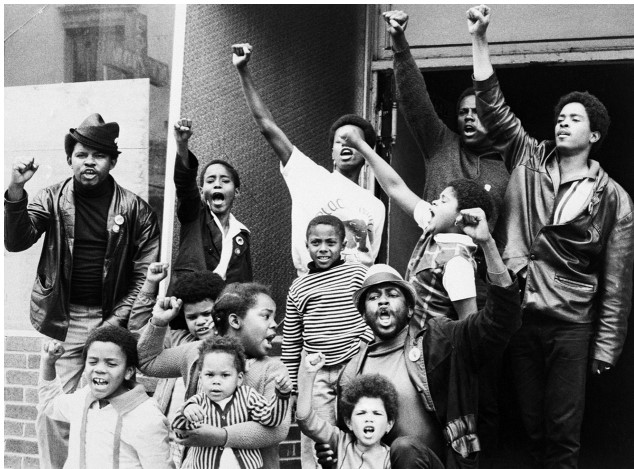Exam 28: Reform, Rebellion, and Reaction
Exam 1: Ancient America Before77 Questions
Exam 2: Europeans Encounter the New World77 Questions
Exam 3: The Southern Colonies in the Seventeenth Century77 Questions
Exam 4: The Northern Colonies in the Seventeenth Century77 Questions
Exam 5: Colonial America in the Eighteenth Century77 Questions
Exam 6: The British Empire and the Colonial Crisis77 Questions
Exam 7: The War for America77 Questions
Exam 8: Building a Republic78 Questions
Exam 9: The New Nation Takes Form77 Questions
Exam 10: Republicans in Power77 Questions
Exam 11: The Expanding Republic77 Questions
Exam 12: The New West and the Free North28 Questions
Exam 13: The Slave South77 Questions
Exam 14: The House Divided77 Questions
Exam 15: The Crucible of War77 Questions
Exam 16: Reconstruction77 Questions
Exam 17: The Contested West77 Questions
Exam 18: Railroads, Business, and Politics in the Gilded Age77 Questions
Exam 19: The City and Its Workers77 Questions
Exam 20: Dissent, Depression, and War77 Questions
Exam 21: Progressivism From the Grass Roots to the White House77 Questions
Exam 22: World War I: the Progressive Crusade at Home and Abroad77 Questions
Exam 23: From New Era to Great Depression77 Questions
Exam 24: The New Deal Experiment77 Questions
Exam 25: The United States and the Second World War77 Questions
Exam 26: Cold War Politics in the Truman Years77 Questions
Exam 27: The Politics and Culture of Abundance77 Questions
Exam 28: Reform, Rebellion, and Reaction77 Questions
Exam 29: Vietnam and the End of the Cold War Consensus78 Questions
Exam 30: America Moves to the Right77 Questions
Exam 31: The Promises and Challenges of Globalization Since76 Questions
Exam 32: Citizenship, Indian Removal, Equality, Women's Rights, Native American Relations, Slavery, Religion, Labor, Westward Expansion, and North-South Differences.10 Questions
Exam 33: Historical Perspectives on American Politics and Society10 Questions
Select questions type
Which of the following factors contributed to John F. Kennedy's win in the presidential election of 1960?
(Multiple Choice)
4.9/5  (41)
(41)
In 1965, President Johnson issued an executive order to require employers holding government contracts
(Multiple Choice)
4.8/5  (27)
(27)
What aspect of the Black Panther Party might have most unnerved white Americans? 
(Multiple Choice)
4.8/5  (37)
(37)
Match the term with the definition.
-Federal body created by President Richard Nixon in 1970 to enforce environmental laws, conduct environmental research, and reduce human health and environmental risks from pollutants.
(Multiple Choice)
4.8/5  (38)
(38)
Cesar Chavez and Dolores Huerta organized the Chicanos primarily to achieve
(Multiple Choice)
4.8/5  (31)
(31)
What were the terms and provisions of each of the three civil rights bills passed in the 1960s?
(Essay)
4.7/5  (39)
(39)
How did the Immigration and Nationality Act of 1965 change U.S. immigration policy?
(Multiple Choice)
5.0/5  (46)
(46)
Match the term with the definition.
-Law passed during Lyndon Johnson's administration that empowered the federal government to intervene to ensure that minorities had access to the voting booth. As a result of the act, black voting and officeholding in the South shot up, initiating a major transformation in southern politics.
(Multiple Choice)
4.8/5  (45)
(45)
How did conservative activists and the Republican administration of Richard Nixon respond to the dramatic changes of the 1960s and early 1970s?
(Essay)
4.7/5  (39)
(39)
Match the term with the definition.
-The Supreme Court under Chief Justice Earl Warren (1953-69), which expanded the Constitution's promise of equality and civil rights and issued landmark decisions in the areas of civil rights, criminal rights, reproductive freedom, and separation of church and state.
(Multiple Choice)
4.8/5  (30)
(30)
The radical feminist movement differed from the National Organization for Women and other mainstream feminist organizations in that
(Multiple Choice)
4.8/5  (30)
(30)
Which of the following is an example of the sweeping change forged by feminists in the 1960s and 1970s?
(Multiple Choice)
4.9/5  (41)
(41)
How did the Civil Rights Act of 1968 address racial equality?
(Multiple Choice)
4.9/5  (25)
(25)
Match the term with the definition.
-President Lyndon Johnson's efforts, organized through the Office of Economic Opportunity, to ameliorate poverty primarily through education and training and by including the poor in decision-making.
(Multiple Choice)
4.7/5  (42)
(42)
What was the event that sparked a larger movement to end discrimination against gay men and lesbians in 1969?
(Multiple Choice)
4.8/5  (31)
(31)
The Supreme Court ruled in Gideon v. Wainwright (1963) that accused criminals were entitled to
(Multiple Choice)
4.9/5  (35)
(35)
When Martin Luther King Jr. was assassinated on April 4, 1968, he was
(Multiple Choice)
4.8/5  (32)
(32)
The new environmentalists of the 1970s broadened the agenda of the Progressive-era conservation movement by
(Multiple Choice)
5.0/5  (37)
(37)
Showing 21 - 40 of 77
Filters
- Essay(0)
- Multiple Choice(0)
- Short Answer(0)
- True False(0)
- Matching(0)